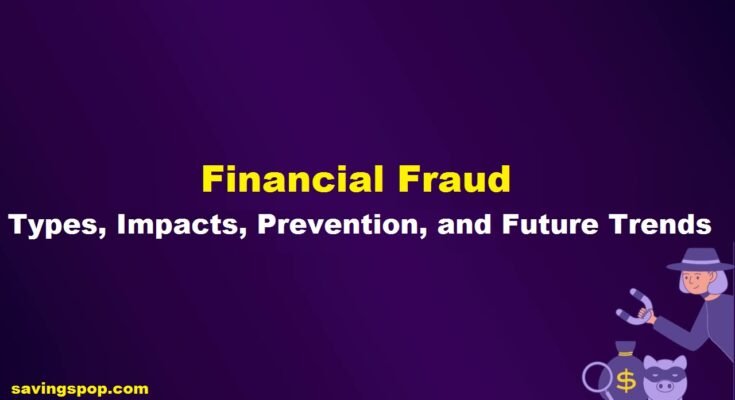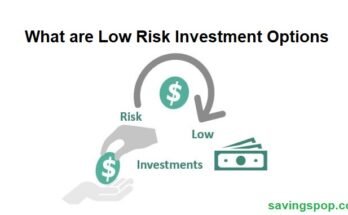Financial fraud is a pervasive difficulty that affects people, businesses, and economies globally. It includes deceitful practices aimed toward gaining an unfair benefit or causing monetary harm. Understanding the character and impact of economic fraud is important in the trendy interconnected and digital world. This manual will explore various aspects of monetary fraud, which includes its types, historical instances, cutting-edge techniques, influences, detection, prevention, legal frameworks, and destiny trends.
What is Financial Fraud?
Financial fraud is any act of deception executed for economic benefit. It consists of a wide variety of illegal activities, from identification theft and credit card fraud to greater complex schemes like investment and loan fraud. These activities can cause big monetary losses and harm to reputations.
Importance of Understanding Financial Fraud
Understanding finances is vital for several reasons:
- Protection: Knowledge helps individuals and businesses protect themselves from becoming victims.
- Prevention: Awareness can lead to better practices that prevent fraud.
- Recovery: Understanding the mechanisms of fraud can useful resource in recovering losses and bringing perpetrators to justice.
- Economic Stability: Reducing fraud contributes to usual economic stability and confidence in monetary systems.
Financial Fraud Statistics
Financial fraud has a wonderful impact on the financial system. According to the Association of Certified Fraud Examiners (ACFE), corporations lose an anticipated five% of their annual revenues to fraud. Financial fraud fees companies and purchasers billions of greenbacks each year inside the United States. These figures spotlight the pressing need for effective fraud prevention and detection measures.
Must Read: 9 Simple and Best Money Saving Ideas that Work
Types of Financial Fraud
Financial fraud manifests in various forms, every with unique methods and effects. Here, we discover some of the most common types:
Identity Theft
Identity theft involves stealing someone’s non-public facts to commit fraud. Common strategies include:
- Phishing: Fraudsters ship emails pretending to be legit corporations to trick individuals into revealing private statistics.
- Skimming: Devices are installed on ATMs or point-of-sale terminals to seize card facts.
- Data Breaches: Hackers infiltrate databases to scouse borrow private facts.
Preventive Measures:
- Use strong, unique passwords for online accounts.
- Regularly monitor bank and credit card statements.
- Enable two-factor authentication where possible.
Credit Card Fraud
When someone makes illicit purchases with a credit card that has been stolen or counterfeited, it is known as credit card fraud. This kind of fraud may occur as a result of:
- Card-not-present (CNP) Transactions: Fraudsters use stolen card details for online purchases.
- Counterfeit Cards: Cloned cards created using skimming devices.
- Lost or Stolen Cards: Physical cards stolen and used for purchases.
Protection Tips:
- Keep your card information private.
- Report lost or stolen cards immediately.
- Use secure websites for online transactions.
Investment Fraud
Investment fraud involves deceptive practices to entice investors into making fraudulent investments. Common schemes include:
- Ponzi Schemes: Fraudsters promise high returns and use new investors’ money to pay earlier investors.
- Pump and Dump: Fraudsters artificially inflate the price of a stock and then sell their shares at a profit.
- Pyramid Schemes: Similar to Ponzi schemes, they involve recruiting new members to invest.
Identification Tips:
- Be aware of investments that promise great returns with low risk.
- Research thoroughly before investing.
- Consult with a financial advisor.
Mortgage Fraud
Mortgage fraud involves misrepresenting information to obtain a mortgage or profit from real estate transactions. Types include:
- Income Fraud: Inflating income to qualify for a larger mortgage.
- Occupancy Fraud: Claiming a property will be a primary residence to get a better rate.
- Appraisal Fraud: Inflating property value to secure a larger loan.
Preventive Measures:
- Provide accurate information on mortgage applications.
- Verify the credentials of real estate professionals.
- Be cautious of too-good-to-be-true deals.
Insurance Fraud
Insurance fraud occurs when individuals or organizations provide false information to benefit financially from insurance policies. Common forms include:
- False Claims: Submitting claims for nonexistent or exaggerated damages.
- Premium Fraud: Misrepresenting information to obtain lower premiums.
- Life Insurance Fraud: Faking death or injury to collect insurance payouts.
Preventive Measures:
- Inform your insurance company of any questionable activities.
- Maintain accurate records and documentation.
- Ensure all information provided to insurers is truthful.
Historical Cases of Financial Fraud
Historical cases of financial fraud provide valuable lessons on the methods used by fraudsters and the impact of their actions. Here are a few notable examples:
Bernie Madoff’s Ponzi Scheme
Bernie Madoff orchestrated one of the biggest Ponzi schemes on record, defrauding traders of an envisioned $65 billion. He promised regular, excessive returns but used new traders’ cash to pay returns to in-advance investors. The scheme collapsed in 2008, mainly due to Madoff’s arrest and 150-year prison sentence.
Lessons Learned:
- Be careful of investments that promise unusually high returns.
- Conduct thorough due diligence before investing.
- Diversify investments to mitigate risk.
Enron Scandal
The Enron scandal involved one of the largest company frauds in records. Enron executives used accounting loopholes and special purpose entities to cover debt and inflate earnings. When the fraud was uncovered in 2001, Enron declared bankruptcy, and its executives faced crook fees.
Lessons Learned:
- Transparent and sincere accounting practices are important.
- Regulatory oversight is critical to stumble and save your company from fraud.
- Whistleblower protections are critical to encourage reporting of fraudulent activities.
WorldCom Fraud
WorldCom, a telecommunications employer, engaged in accounting fraud by using inflating its assets via $eleven billion. The fraud was uncovered in 2002, leading to the agency’s bankruptcy and the imprisonment of its CEO, Bernie Ebbers.
Lessons Learned:
- Regular audits and unbiased verification of monetary statements are vital.
- Corporate governance and moral leadership are important to save you from fraud.
- Robust internal controls can help locate and deter fraudulent sports.
Modern Techniques in Financial Fraud
The methods employed by con artists also change as technology does. Modern financial fraud often involves sophisticated methods that leverage technology and digital platforms.
Cyber Fraud
Cyber fraud encompasses a wide range of online fraudulent activities. Some common types include:
- Phishing: Fraudsters send fake emails or messages to trick individuals into providing personal information.
- Ransomware: Malware that locks a user’s data, demanding a ransom for its release.
- Social Engineering: Manipulating individuals into divulging confidential information.
Protection Tips:
- Be cautious of unsolicited emails and messages.
- Use reliable antivirus software.
- Regularly update passwords and security settings.
Technology in Financial Fraud
Fraudsters use advanced technology to commit financial fraud. This includes:
- Artificial Intelligence (AI): Used to create sophisticated phishing emails or deepfake videos.
- Cryptocurrency: Anonymity in cryptocurrency transactions can facilitate money laundering and fraud.
- Blockchain: While blockchain technology offers security, it can also be exploited for fraudulent activities if not properly managed.
Preventive Measures:
- Stay informed about the latest technology trends and threats.
- Use secure and reputable platforms for financial transactions.
- Implement multi-factor authentication.
Role of Cryptocurrency in Financial Fraud
Cryptocurrencies have become a popular target for fraud due to their decentralized and anonymous nature. Common frauds include:
- ICO Scams: Fraudulent Initial Coin Offerings (ICOs) where fraudsters collect funds for non-existent projects.
- Ponzi Schemes: Promising high returns on cryptocurrency investments and paying old investors with new investors’ money.
- Hacking: Breaching cryptocurrency exchanges to steal funds.
Protection Tips:
- Research thoroughly before investing in cryptocurrencies.
- Use reputable exchanges and wallets.
- Investment possibilities that appear too good to be true should be avoided.
Impact of Financial Fraud
Financial fraud has far-reaching consequences that extend beyond financial loss. It affects individuals, businesses, and society as a whole.
Economic Impact
Financial fraud undermines consumer confidence and trust in financial systems. It leads to:
- Increased Costs: Businesses incur costs related to fraud prevention and recovery.
- Economic Instability: Large-scale fraud can destabilize financial markets and economies.
- Loss of Investments: Individuals may lose their life savings or investments, impacting their financial security.
Psychological and Emotional Impact
Victims of financial fraud often experience the following:
- Stress and Anxiety: Dealing with financial losses can lead to significant stress and anxiety.
- Loss of Trust: Victims may lose trust in financial institutions and others, affecting future financial decisions.
- Stigma: Victims may feel embarrassed or ashamed of being deceived.
Social Impact
Financial fraud can erode social cohesion and trust:
- Legal and Regulatory Repercussions: Governments may introduce stricter regulations to combat fraud, impacting businesses and consumers.
- Community Effects: Local communities can suffer from the fallout of large-scale fraud, affecting employment and investment opportunities.
Detecting and Preventing Financial Fraud
Detecting and preventing financial fraud requires a multi-faceted approach involving technology, education, and regulation.
Detection Techniques
Detecting financial fraud involves:
- Data Analytics: Using advanced analytics to detect unusual patterns or anomalies in financial transactions.
- Machine Learning: Training algorithms to identify fraudulent behavior based on historical data.
- Behavioral Analysis: Monitoring user behavior to detect deviations from normal patterns.
Prevention Strategies
Preventing financial fraud includes:
- Education and Awareness: Educating consumers and businesses about common fraud schemes and prevention measures.
- Security Measures: Implementing strong authentication methods and encryption protocols.
- Regulatory Compliance: Adhering to legal and regulatory standards to protect against fraud.
Legal Frameworks and Enforcement
Legal frameworks play a crucial role in combating financial fraud:
- Laws and Regulations: Governments enact laws to criminalize fraud and protect victims.
- Law Enforcement: Agencies investigate and prosecute perpetrators of financial fraud.
- International Cooperation: Collaboration between countries is essential to address cross-border financial fraud.
Future Trends in Financial Fraud
The landscape of financial fraud is constantly evolving with technological advancements and changing consumer behaviors.
Emerging Threats
Future threats include:
- AI-pushed Fraud: Increasingly sophisticated AI tools can create extra convincing fraudulent schemes.
- IoT Vulnerabilities: Connected gadgets present new opportunities for fraudsters to exploit.
- Biometric Fraud: The theft of biometric records should lead to new sorts of identity fraud.
Mitigation Strategies
To mitigate future risks, stakeholders must:
- Invest in Technology: Develop advanced cybersecurity measures to live ahead of fraudsters.
- Enhance Collaboration: Foster partnerships between governments, corporations, & cybersecurity experts.
- Educate Consumers: Raise cognizance about emerging fraud threats and prevention strategies.
Conclusion
Financial fraud is a complex and pervasive issue that poses good-sized challenges to individuals, companies, and society. Stakeholders can higher defend themselves and mitigate risks using knowledge of the diverse sorts of fraud, historic instances, cutting-edge strategies, impacts, detection methods, prevention techniques, prison frameworks, and future tendencies. Vigilance, training, technological innovation, and regulatory cooperation are crucial in the ongoing fight against financial fraud.




